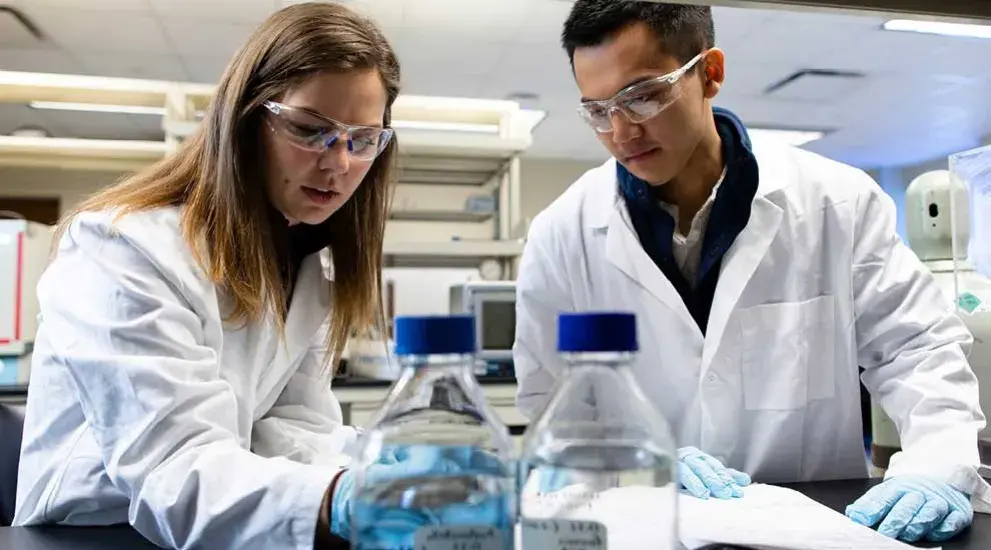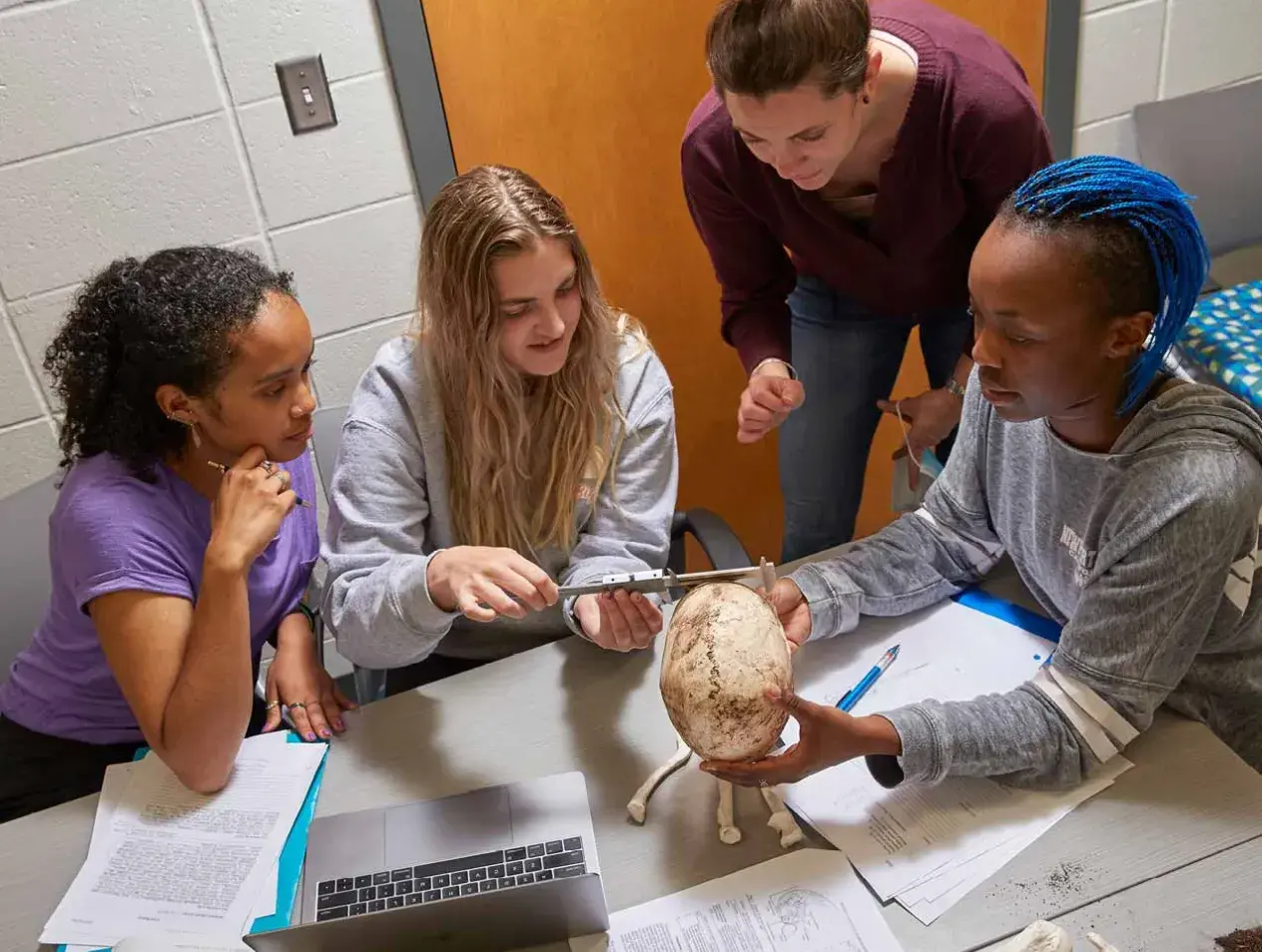
Research Areas
Excelling in Interdisciplinary Research
While many areas of research at Creighton produce exemplary work, these fields include those in which we are most recognized and active today. The research community at Creighton is tight-knit and supportive, with many areas of collaboration and intersection between all corners of campus.
Cancer Research
Noted experts in hereditary cancer, skin cancer, breast cancer and prostate cancer are hard at work at Creighton University.
Cancer research at Creighton University focuses on saving lives by finding new ways to treat, prevent and detect cancer. Scholars from disciplines ranging from biomedical sciences to physics conduct research on many different types of cancer, including breast cancer, head and neck cancer, leukemia, lymphoma, prostate cancer, and skin cancer, among others. Often working collaboratively and attacking a problem from multiple angles, their work offers hope for a future where more cancers are treatable and treatment options are better.
The Lynch Cancer Research Center
Established in 1984, the Lynch Cancer Research Center (previously the Hereditary Cancer Center) at Creighton University is dedicated to comprehensive research regarding hereditary cancer syndromes. Cancer studies include:
- Breast cancer
- Ovarian cancer
- Colon cancer
- Hematological cancer
- Pancreatic cancer
- Prostate cancer
Together, Creighton’s faculty and student researchers are expanding the horizons of discovery and removing barriers to conquering cancer.
Hearing Research
The incidence of hearing loss for children in the U.S. under the age of 2 is about 1 in 200, typically caused by trauma, infection or antibiotic drugs. By 18, about one in 20 children experience hearing loss. From there, the frequency increases with age-related hearing loss added into the mix.
Creighton’s Translational Hearing Center is focused on translational auditory/vestibular research to develop biomedical and ototherapeutic solutions that preserve or restore hearing and vestibular function. The center partners with nearby Boys Town National Research Hospital and the University of Nebraska Medical Center.
Peter Steyger, PHD, director of the center notes, “What Creighton has done across disciplines and in partnering with other institutions gives us the opportunity to learn and discover alongside one another and translate those discoveries to prevent hearing loss or restore hearing to a lot of people.”

Antibiotic Development
Creighton’s Department of Medical Microbiology and Immunology conducts research that relates to the intersection between microbial pathogenesis and host defense. Within the department, the Center for Research in Anti-Infectives and Biotechnology (CRAB) conducts a variety of research related to antibacterial resistance.
Diabetes Research
The Creighton University type 1 diabetes research team aims to improve child health outcomes, family quality of life, and access to specialized healthcare. Current focus areas include the impact of COVID-19 on family quality of life and health care access for families with a child with diabetes and the relation of economic stability to health.








